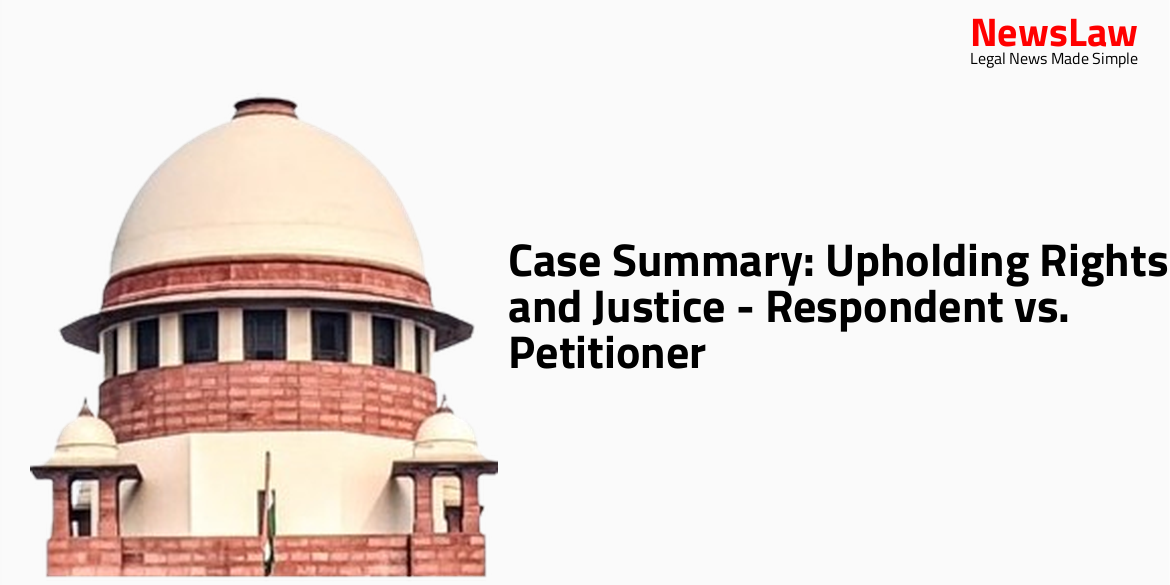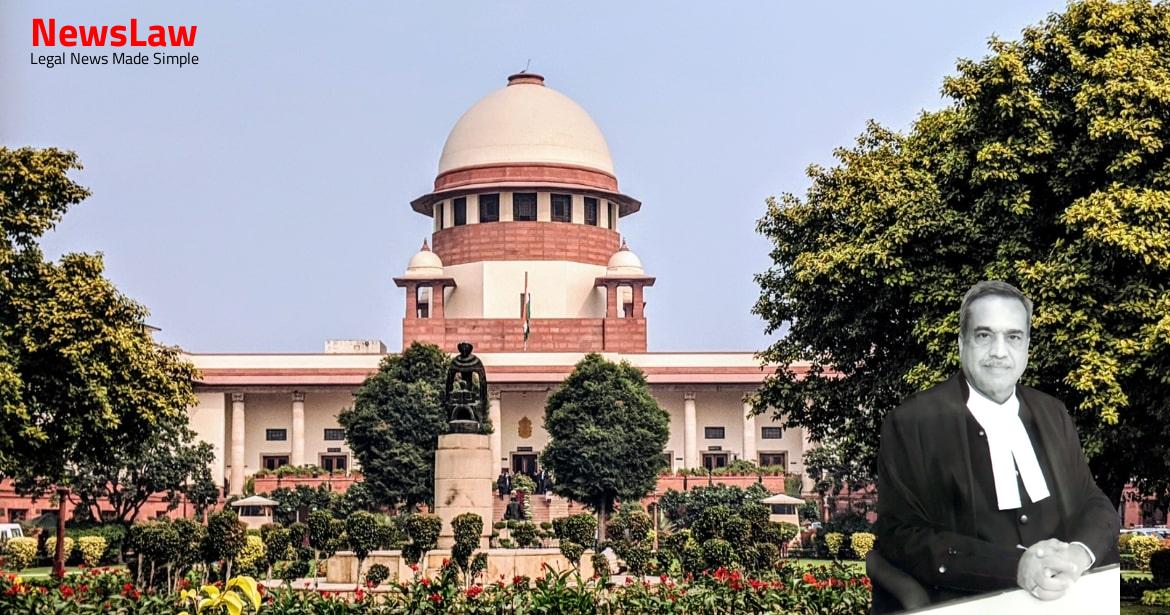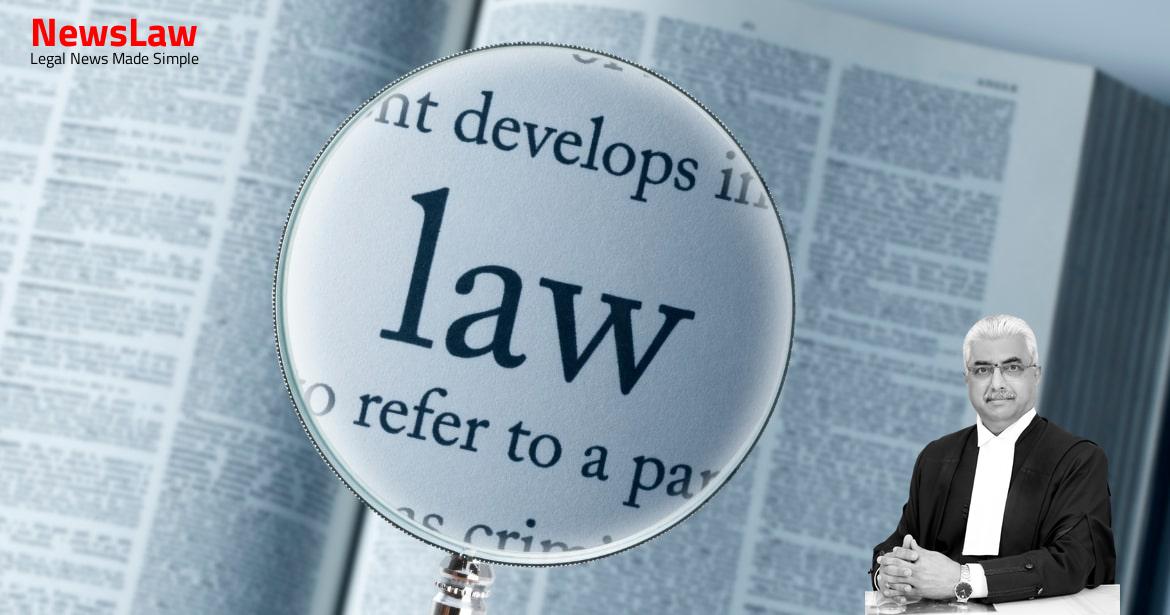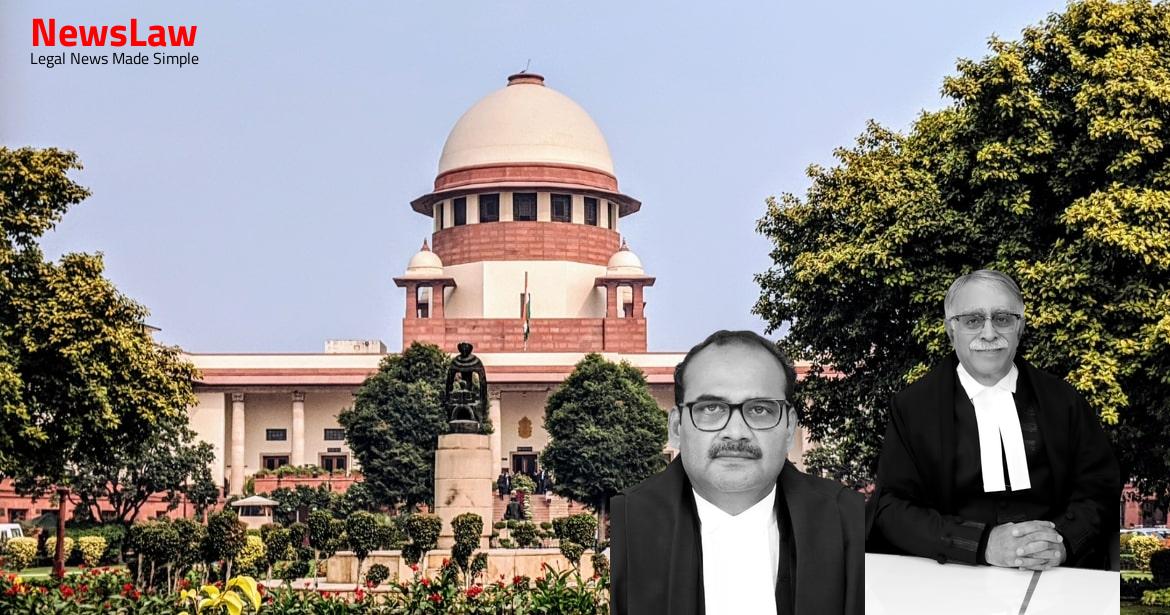In a significant legal development, the Delhi High Court has delivered its judgement in the case of Respondent vs. Petitioner, emphasizing the importance of upholding rights and justice. The case sheds light on crucial issues surrounding labor disputes and the protection of fundamental rights. Stay informed about the details of the court’s decision and its implications for similar cases. #LegalJustice #LabourRights #DelhiHighCourt
Facts
- The petitioner joined the organization as a Sample Tailor on 19 February, 2002 with a monthly salary of Rs.4,107/-.
- The petitioner requested benefits such as legal facilities, double overtime, leave, etc. from the management, which was denied.
- On 8 December, 2008, the petitioner was illegally terminated without notice, charge sheet, or domestic enquiry.
- The Labour Inspector’s report stated that the petitioner was not reinstated and no settlement was reached.
- The petitioner filed a case for benefits before the Labour Conciliation Officer, later transferred to the Labour Court on 1 October, 2008.
- The petitioner sent a legal notice regarding illegal termination on 15 December, 2008, to which there was no reply from the respondent.
- A complaint was filed before the Assistant Labour Commissioner on 15 December, 2008, resulting in the earned wages being paid but no reinstatement.
- Another dispute for reinstatement (LID no. 726/2016) was raised by the petitioner due to non-reinstatement.
- The petition to quash the award dated 7 September, 2018, was filed on 11 February, 2019, citing various grounds including oversight by the Presiding Officer.
- The impugned award dated 7 September, 2018, rejected the industrial dispute raised by the petitioner for reinstatement.
Issue
- The issue in consideration is whether the workman was terminated illegally and/or unjustifiably by the management.
Arguments
- The petitioner was offered a meager monetary settlement by the respondent, which indicates an acknowledgment of wrongdoing by the respondent.
- The Labour Court overlooked critical facts such as the petitioner reporting for duty but being refused reinstatement by the management.
- Letters from the management to the petitioner were sent to the Union instead of directly to the petitioner, impacting the communication between the parties.
- The impugned award wrongly held the petitioner responsible for not joining duties when it was the management’s refusal to reinstate him that led to the situation.
- The petitioner’s illegal termination was highlighted, and the management’s actions were deemed unjust and in violation of the law.
- The impugned award was deemed arbitrary and a violation of the petitioner’s rights, warranting it to be set aside.
- The management’s actions were noted as unwarranted litigating activity, denying job security to workers.
- The Labour Court failed to consider crucial reports and testimonies, leading to an unfair judgement.
- The rights of the petitioner under Article 14, 19, and 21 of the Constitution were deemed to be violated by the award.
- The impact of the petitioner’s termination on their family’s well-being was emphasized, showing the broader consequences of job loss.
- Discrepancies in the Labour Inspector’s report over time raised doubts about the accuracy of the information presented by the management.
- The petitioner’s grievance stemmed from the violation of their fundamental rights, necessitating legal intervention for justice and protection.
- The petitioner abandoned his services with the management by remaining absent unauthorizedly from his duties.
- Petitioner admitted to receiving all labor welfare benefits and never complained about benefits not being provided.
- Petitioner had no documentation to support claims of overtime work during his services.
- Petitioner never instructed the Union to file a general demand case against the management.
- Management sent multiple reminders to the petitioner to rejoin his duties after unauthorized absence.
- Failing to rejoin duties would lead to disciplinary action by the management.
Analysis
- Abandonment of service is different from termination as it is a result of unilateral action by the employee.
- Employer must give notice to the employee to resume duty and conduct an inquiry before terminating on grounds of abandonment.
- Allegations of abandonment must be proven by the employer along with evidence of the employee’s intention to abandon.
- Courts can intervene in labor disputes only if the decision is perverse or based on wrong legal principles.
- Long absence without communication can be deemed as abandonment of service.
- The employee’s clear intention to not return to work must be evident for abandonment to be established.
- Findings of fact by a tribunal are generally final unless they are perverse or unsupported.
- Extended absence may lead to voluntary abandonment of service, leading to automatic termination.
- Unfair labor practices may occur if termination is motivated by resisting worker demands for wage revision.
- Extended absence beyond sanctioned leave period can be treated as resignation and termination from service.
- Illegally terminated employees are typically entitled to full back wages except for periods of alternative employment.
- The claimant failed to provide any evidence that he had ever worked overtime for the management.
- The respondent management made numerous attempts to call the claimant back to work, but he did not respond.
- The claimant admitted to receiving letters from the management asking him to return to work, but he did not resume his duties.
- The claimant did not file any complaint against the management for not allowing him to join his duties.
- The court observed that the claimant voluntarily abandoned his job and did not intend to rejoin his duties.
- Despite being offered the opportunity, the claimant did not report for work at the new location of the management.
- The management proved through documents that the claimant’s name was still on the muster-roll, indicating his services had not been terminated.
- The claimant admitted that he never instructed the Union to file a general demand case on his behalf.
- The management sent multiple letters to the claimant informing him of his unauthorized absence and asking him to return to work, but he did not comply.
- The Court upholds the impugned award dated 7 September, 2018 passed by the Labour Court – IX, Dwarka Courts, Delhi.
- The Court finds no merit in the batch of petitions and sees no illegality in the findings of the Labour Court.
- The Labour Court found that the petitioners had abandoned their services and rejected the allegation of illegal termination by the management.
- The petitioners failed to present any propositions to support their case.
Decision
- The impugned award in each of the connected petitions is upheld by the Court.
- The instant batch of petitions is dismissed.
- Pending applications, if any, are also dismissed.
Case Title: SANTOSH KUMAR Vs. AT HOME INDIA PVT. LTD. AND ANR. (2024:DHC:3790)
Case Number: W.P.(C)-1579/2019



